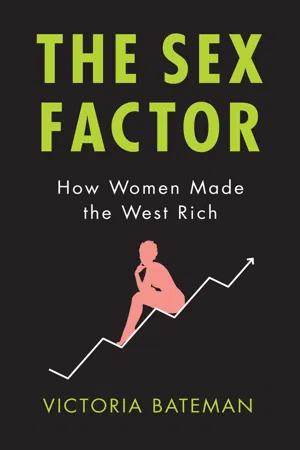Introduction
Perhaps the most fundamental question economists face is why are some countries rich and so many others still poor? Why is average yearly income in the United States (measured in international dollars) close to $59,532 a year but not so far away, in Guatemala, average yearly income is only $8,150, whilst in Pakistan and Sudan it is even lower, at $5,527 and $4,904 respectively? The differences are stark.1 What would take a year for someone to earn in Pakistan could be earned in not much more than a month in the United States. Whilst money certainly isn't enough to make us happy, the fact that so many people risk their lives attempting to cross the Mexican border or clambering on board boats owned by unscrupulous people traffickers destined for the European coastline is clear enough evidence that the gap in prosperity matters.
It seems that the greatest determinant of whether we live a long and comfortable life or a short disease-ridden one threatened by hunger, is little more than where we are born. As the economist Branko Milanovic shows, at least 66 per cent of the differences in people's income worldwide is explained by the country in which they live.2 It is often not our capabilities, work ethic or drive that has the greatest effect on our standard of living but where, by the luck of the draw, we first entered the world. Those of us born in countries like the United States and Britain have literally hit the jackpot.
Looking to history helps us understand how we got to where we are today, and, when doing so, one particular event has long stood out: the Industrial Revolution. The Industrial Revolution took place in Britain in the late eighteenth and early nineteenth centuries, spreading to continental Europe and the United States in the course of the nineteenth century. Ever since, western incomes have travelled along an upward trajectory, albeit with some bumps along the way. The result was a big divergence in economic fortunes between ‘the West and the rest’.
At the centre of Britain's Industrial Revolution was the area in which I grew up in cold and wet northern England: Manchester. Whilst Manchester is perhaps best known internationally for football (admittedly, my family were keen Manchester United fans and, as a result, I was dressed in red rather than baby pink as a child), it is in fact the Industrial Revolution for which it truly deserves fame. This was a time at which the city became known as ‘Cottonopolis’, and my grandparents and their grandparents before them all earned a living working in cotton mills in or on the outskirts of Manchester. When I was growing up in the 1980s, my grandmother bombarded me with stories of an age that was by then rapidly vanishing – and, of course, of the difficult lives of my female ancestors. Deindustrialization was setting in and Manchester had long passed its peak – industrialization and cotton manufacture had spread overseas, so that many of the cotton mills in which my family had worked had fallen silent. However, the evidence of earlier success was clearly visible in the landscape, which was scattered with imposing red-bricked mills, with chimneys that reached high into the sky, most of them in a dilapidated state of disrepair, with smashed windows and crumbling brickwork and the occasional sound of children ‘exploring’ the derelict stairwells. Some of these industrial mausoleums found a new use as warehouses and, by the time the 1990s were in full swing, as blocks of New York-style loft apartments (with prices well out of the reach of the former cotton workers). With the factory doors firmly closed, some of my aunts and uncles moved to work at the other end of the ‘cloth trade’, on the production floors or in the design studios of expanding British fashion labels or in small couture houses. Britain's early industrialization was clear in every aspect of my early life, as it is in the fashion conscious and stylishly dressed Britain of today.
Why Britain successfully industrialized, and, with it, how Europe and indeed the West became global economic leaders, were questions I could not help but ponder from a young age. However, when I took to the books to find the answers, I found accounts almost purely of men – of the famous male engineers, entrepreneurs, scientists and inventors whose statues, cast in bronze, basked in sunshine in the centres of our big cities (including my home town). It left me wondering: where were the women who, I knew from my own family stories, had, for exa...
